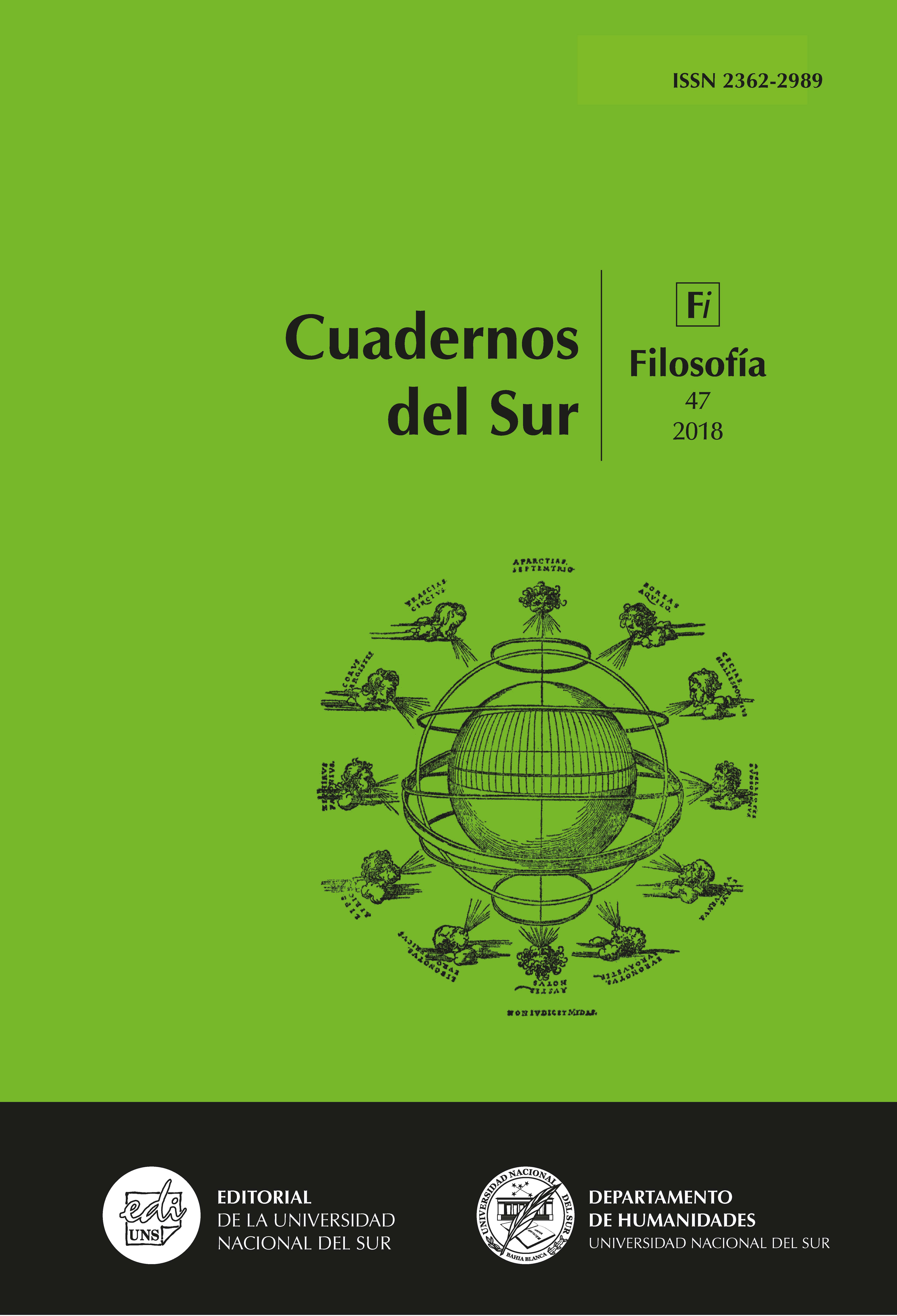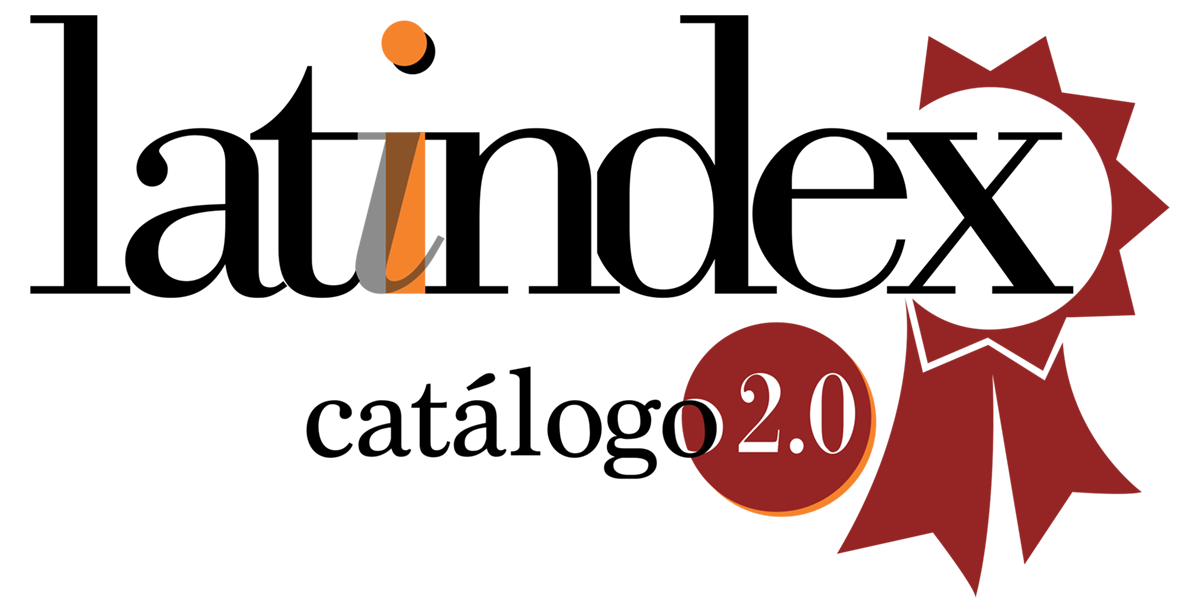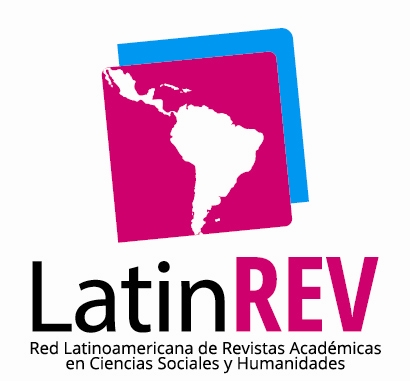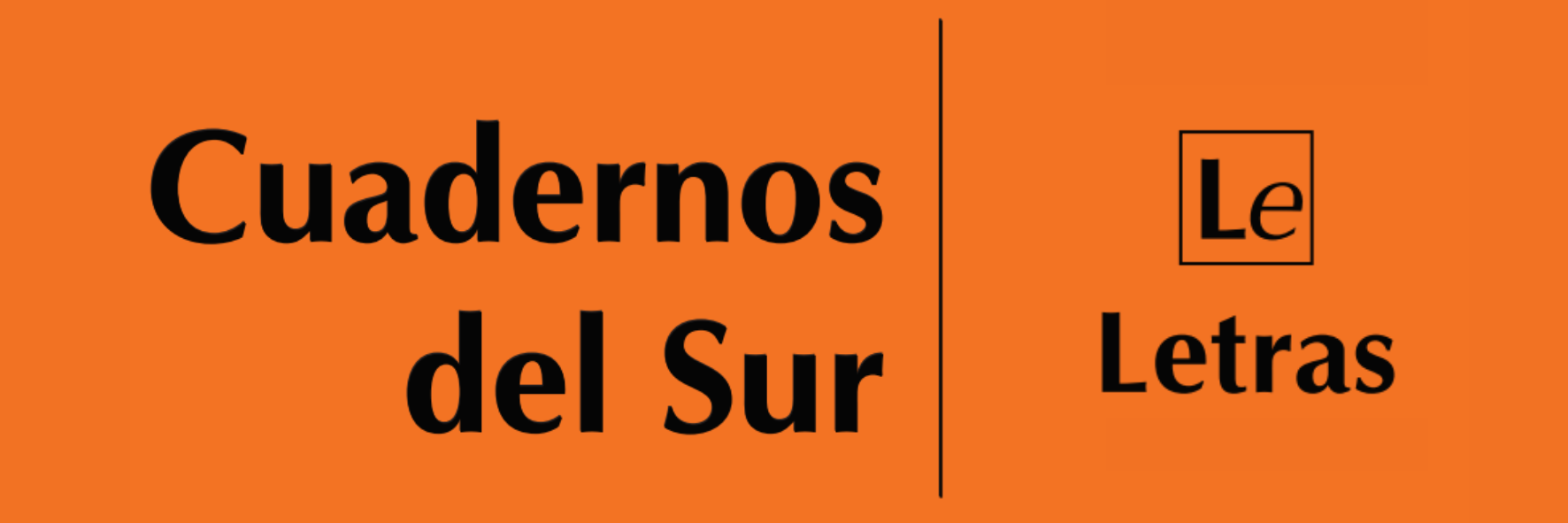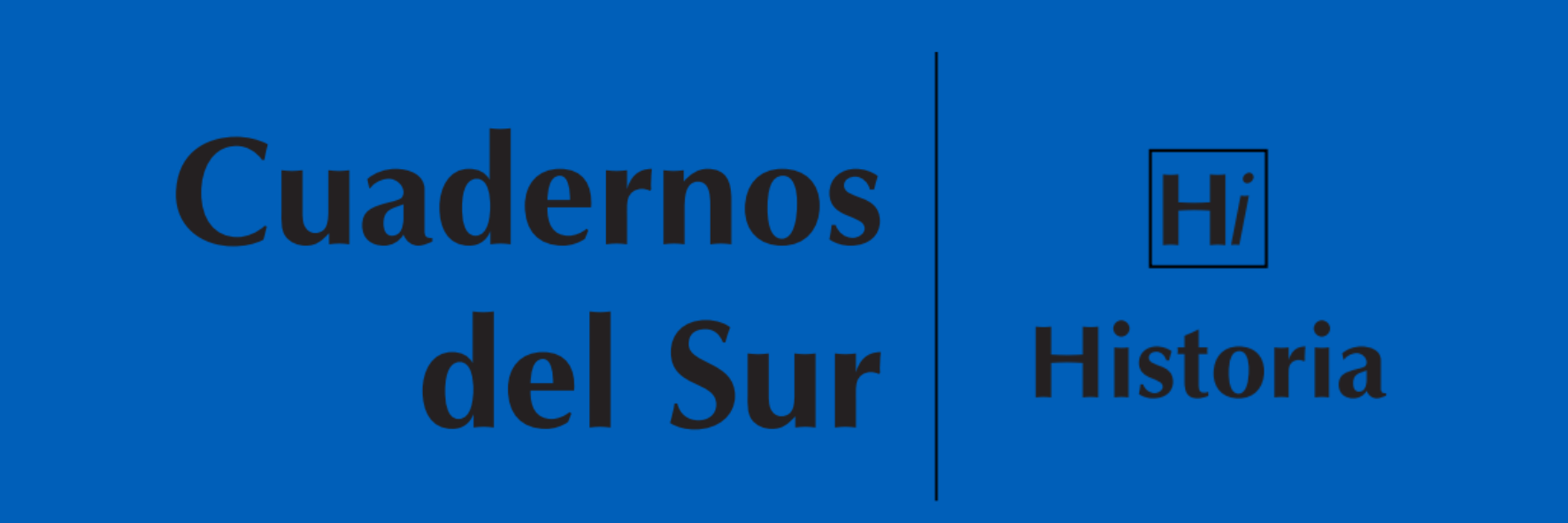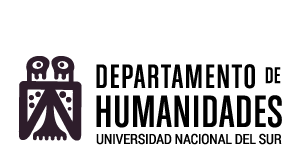Lenguaje científico y prohibición terminológica. Consideraciones sobre el index verborum prohibitorum de Neurath
Palabras clave:
ciencia unificada , terminología , decisionismoResumen
La formación de un index verborum prohibitorum constituye una idea ciertamente controvertida que la revisión histórica del empirismo lógico ha tratado, sin embargo, como una mera curiosidad, como un rasgo accesorio de la filosofía de la ciencia de Neurath. Pero, ¿podemos conservar la filosofía de la ciencia de Neurath, considerarla una lúcida anticipación de las concepciones filosóficas contemporáneas, atribuirle una indiscutible vigencia y, al mismo tiempo, resignar el index verborum prohibitorum? En este trabajo consideramos que la respuesta es negativa, que el index no puede resignarse porque está íntimamente relacionado con otros rasgos fundamentales de la filosofía de la ciencia de Neurath, como su concepción no cartesiana del lenguaje científico, su concepción enciclopedista del conocimiento y su concepción pluralista de la racionalidad.
Descargas
Citas
Carnap, Rudolf (1928), Der logische Aufbau der Welt, Berlín, Bernary.
----- (1942), Introduction to Semantics, Cambridge, Massachusetts, Harvard University Press.
Horkheimer, Max (1937), “The latest attack on Metaphysics”, en (1972) Critical Theory. Selected essays, Nueva York, Seabury Press, pp. 132-187.
Kemeny, John y Oppenheim, Paul (1956), “On reduction”, Philosophical Studies, vol. 7, pp. 6-19.
Nagel, Ernest (1961), The structure of science: problems in the logic of scientific explanation, New York, Harcourt.
Neurath, Otto (1913), “The lost wanderes of Descartes and the auxiliary motive”, en Cohen, Robert y Neurath, Marie (eds.) (1983), Otto Neurath. Philosophical Papers 1913-1946, Dordrecht, Reidel, pp. 1-12.
----- (1921), “Anti-Spengler”, en Neurath, Marie y Cohen, Robert (eds.) (1973), Otto Neurath. Empiricism and sociology, Dordrecht, Reidel, pp. 158-213.
----- (1931), “Sociology in the framework of physicalism”, en Cohen, Robert y Neurath, Marie (eds.) (1983), Otto Neurath. Philosophical Papers 1913-1946, Dordrecht, Reidel, pp. 58-90.
----- (1932), “Protocol statements”, en Cohen, Robert y Neurath, Marie (eds.) (1983), Otto Neurath. Philosophical Papers 1913-1946, Dordrecht, Reidel, pp. 91-99.
----- (1933), “Unified science and psychology”, en McGuinness, Brian (ed.) (1987), Unified science, Dordrecht, Reidel, pp. 1-23.
----- (1936a), “An internacional encyclopedia of unified science”, en Cohen, Robert y Neurath, Marie (eds.) (1983), Otto Neurath. Philosophical Papers 1913-1946, Dordrecht, Reidel, pp. 139-144.
----- (1936b), “Encyclopedia as «model»”, en Cohen, Robert y Neurath, Marie (eds.) (1983), Otto Neurath. Philosophical Papers 1913-1946, Dordrecht, Reidel, pp. 145-158.
----- (1937a), “Unified science and its encyclopedia”, en Cohen, Robert y Neurath, Marie (eds.) (1983), Otto Neurath. Philosophical Papers 1913-1946, Dordrecht, Reidel, pp. 172-182.
----- (1937b), “The departmentalization of unified science”, en Cohen, Robert y Neurath, Marie (eds.) (1983), Otto Neurath. Philosophical Papers 1913-1946, Dordrecht, Reidel, pp. 200-205.
----- (1938), “Unified science as encyclopedic integration”, en Neurath, Otto et al. (eds.) (1955), International Encyclopedia of Unified Science, vol. 1, n° 1-5, Chicago, The University of Chicago Press, pp. 1-27.
----- (1941), “Universal jargon and terminology”, en Cohen, Robert y Neurath, Marie (eds.) (1983), Otto Neurath. Philosophical Papers 1913-1946, Dordrecht, Reidel, pp. 213-229.
----- (1944), Foundations of the social sciences, en Neurath, Otto, Carnap, Rudolf y Morris, Charles (eds.), International Encyclopedia of Unified Science, vol. 2, n° 1, Chicago, University of Chicago Press.
----- (1946), “The orchestration of the sciences by the encyclopedism of logical empiricism”, en Cohen, Robert y Neurath, Marie (eds.) (1983), Otto Neurath. Philosophical Papers 1913-1946, Dordrecht, Reidel, pp. 230-242.
----- (1996), “Visual education. Humanisation versus popularisation”, en Nemeth, Elizabeth y Stadler, Friedrich (eds.), Encyclopedia and utopia: the life and work of Otto Neurath, 1882-1945, Dordrecht, Kluwer, pp. 245-335.
----- (2006), Fundamentos de las ciencias sociales, Granada, Comares.
Schlick, Moritz (1937), “L’ecole de Vienne et la philosophie traditionnelle”, Travaux du IX congrès international de philosophie, fasc. IV, París, Hermann, pp. 99-107.
Tarski, Alfred (1933), “The concept of truth in formalized languages”, en (1983) Logic, semantics, metamathematics, Indianapolis, Hackett, pp. 152-278.
Wittgenstein, Ludwig (1921), “Logisch-philosophische Abhandlung”, Annalen der Natur- und Kulturphilosophie, vol. 14, pp. 185-262.
Aimino, Matías (2011), “La crítica a la metafísica en Carnap”, en Velasco, Marisa y Venturelli, Nicolás (eds.), Epistemología e historia de la ciencia, vol. 17, Córdoba, Universidad Nacional de Córdoba, pp. 15-22.
Alvarez, Marisa et al. (2013), “La reducción como ejemplo de relación interteórica”, Cuadernos FHyCS-UNJu, n° 44, pp. 119-131.
Araujo, Carolina y Medina, Celia (2014), “Acerca de la polémica Neurath-Horkheimer: ciencia y política”, Diánoia, vol. 59, n° 72, pp. 113-129.
Cartwright, Nancy et al. (1996), Otto Neurath: philosophy between science and politics, Cambridge, Cambridge University Press.
Cat, Jordi y Tuboly, Adam (eds.) (2019), Neurath reconsidered. New sources and perspectives, Boston Studies in the Philosophy and History of Science 336, Springer.
Freudenthal, Gideon y Karachentsev, Tatiana (2011), “G. Itelson. A socratic philosopher”, en Symons, John et al. (eds.), Otto Neurath and the unity of science, Dordrecht, Springer, pp. 109-126.
Hempel, Carl (1969), “Logical positivism and the social sciences”, en Fetzer, James (ed.) (2001), The philosophy of Carl G. Hempel, Oxford, Oxford University Press, pp. 253-275.
Mormann, Thomas (1996a), “Enciclopedism as an anti-cartesian account of language and science”, en Nemeth, Elizabeth y Stadler, Friedrich (eds.), Encyclopedia and utopia: the life and work of Otto Neurath, 1882-1945, Dordrecht, Kluwer, pp. 87-96.
----- (1996b), “El lenguaje en Neurath y Carnap”, en Cirera, Ramón et al. (eds.), El programa de Carnap. Ciencia, lenguaje, filosofía, Barcelona, CELC-Ediciones del Bronce, pp. 215-241.
Nemeth, Elizabeth y Stadler, Friedrich (eds.) (1996), Encyclopedia and utopia: the life and work of Otto Neurath, 1882-1945, Dordrecht, Kluwer.
Neurath, Marie y Cohen, Robert (eds.) (1973), Otto Neurath. Empiricism and sociology, Dordrecht, Reidel.
O’Neill, John (2003), “Unified science as political philosophy: positivism, pluralism and liberalism”, Studies of History and Philosophy of Science, n° 34, pp. 575-596.
Prono, María Inés (2010), “Otto Neurath: relevancia y actualidad de su concepción pluralista de la racionalidad”, Tópicos, n° 19-20, pp. 83-100.
----- (2020), “Naturalismo, crítica y reflexión: re-evaluación de la polémica entre Neurath y Horkheimer”, Encrucijadas. Revista crítica de ciencias sociales, vol. 2, pp. 1-19.
Reisch, George (1996), “Terminology in action: Neurath and the International Encyclopedia of Unified Science”, en Nemeth, Elizabeth y Stadler, Friedrich (eds.), Encyclopedia and utopia: the life and work of Otto Neurath, 1882-1945, Dordrecht, Kluwer, pp. 79-86.
----- (1997), “Economist, epistemologist... and censor? On Otto Neurath’s Index Verborum Prohibitorum”, Perspectives on Science, vol. 5, pp. 452-480.
----- (2009), Cómo la guerra fría transformó la filosofía de la ciencia. Hacia las heladas laderas de la lógica, Bernal, UNQ.
Sebestik, Jan (2011), “Otto Neurath’s epistemology and its paradoxes”, en Symons, John et al. (eds.), Otto Neurath and the unity of science, Dordrecht, Springer, pp. 41-57.
Stadler, Friedrich (2013), El Círculo de Viena. Empirismo lógico, ciencia, cultura y política, México, FCE-UAM.
Symons, John et al. (eds.) (2011), Otto Neurath and the unity of science, Dordrecht, Springer.
Uebel, Thomas (ed.) (1991), Rediscovering the forgotten Vienna Circle: austrian studies on Otto Neurath and the Vienna Circle, Dordrecht, Kluwer.
----- (1992) Overcoming logical positivism from within. The emergence of Neurath’s naturalism in the Vienna Circle’s protocol sentence debate, Amsterdam, Rodopi.
Velasco, Ambrosio (2009), “La virtud de los padres: el legado de Duhem y Neurath. Para una filosofía moral y política de la ciencia”, en Minhot, Leticia y Torrano, Andrea (eds.), Culturas científicas y tecnológicas. Dimensiones y realidades, Córdoba, Brujas, pp. 255-271.
Zolo, Danilo (1989), Reflexive epistemology: the philosophical legacy of Otto Neurath, Dordrecht-Boston, Kluwer.
Cómo citar
Número
Sección
Licencia
Derechos de autor 2022 Matías Aimino

Esta obra está bajo una licencia internacional Creative Commons Atribución-NoComercial 4.0.
Aquellos autores/as que tengan publicaciones con esta revista, aceptan los términos siguientes:- Los autores/as conservarán sus derechos de autor y garantizarán a la revista el derecho de primera publicación de su obra, el cuál estará simultáneamente sujeto a la licencia Atribución-No Comercial 4.0 Internacional CC BY-NC 4.0.
- Los autores/as podrán adoptar otros acuerdos de licencia no exclusiva de distribución de la versión de la obra publicada (p. ej.: depositarla en un archivo telemático institucional o publicarla en un volumen monográfico) siempre que se indique la publicación inicial en esta revista.
- Se permite y recomienda a los autores/as difundir su obra a través de Internet (p. ej.: en archivos telemáticos institucionales o en su página web) una vez publicado su trabajo, lo cual puede producir intercambios interesantes y aumentar las citas de la obra publicada. (Véase El efecto del acceso abierto).

